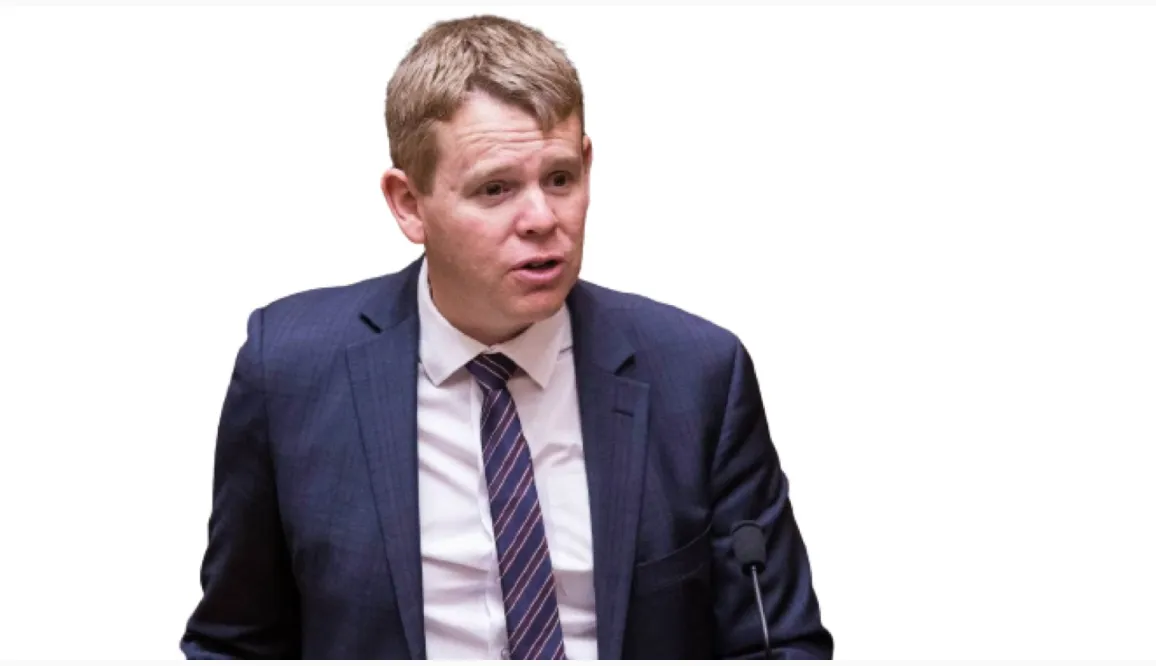Bryce Edwards
Dr Bryce Edwards is Political Analyst in Residence at Victoria University of Wellington. He is the director of the Democracy Project.
In recent decades the Labour Party has lost its traditional connection with working-class voters, becoming more of a middle-class party of liberalism.
This is especially true of Labour’s historic connection with working-class Maori. This is a constituency that the party used to monopolise. But ever since the days of Rogernomics, the Maori working-class base of the party started to lose faith in Labour.
Politicians like Matiu Rata and Sandra Lee split and shifted to alternative political vehicles like Mana Motuhake and the Alliance. Then New Zealand First won all the Maori electorate seats in 1996. And, after Labour regained these seats, the newly-formed Maori Party won most of them off Labour in 2008.
This means that for the last few decades, Labour hasn’t been able to count on the Maori vote, and it has also had to come to grips with a Maori electorate that is far from a monolith, with the same political preferences. A growing Maori middle class and iwi elite have very different aspirations and policy preferences to working-class Maori.
The “Bread and butter” concerns of working class Maori
Within Maoridom there is a tension between the desire to focus on working-class “bread and butter” issues like inequality, poverty, education, healthcare, and housing, and a more culturalist approach focused on the Treaty of Waitangi and bicultural constitutional arrangements.
The Labour Party is most successful with the Maori electorate when it orientates towards the working-class concerns of Maori voters. The party’s historic belief in universalism and leftwing policies to lift up those at the bottom of the pile regardless of race resonates with their traditional working-class Maori base.
For example, the last public polling of Maori, undertaken by Horizon Research for The Hui early last year, showed most Maori voters have very similar views to non-Maori voters in wanting the government to deliver the basics – especially an improved standard of living.
When asked which issues will most influence their voting choice at the 2023 election, 72 per cent of Maori respondents chose “Cost of living”, followed by housing, health, Covid, poverty, economy, employment, education, and environment. Only 32 per cent chose “Tiriti o Waitangi Settlements” as influencing their vote.
Notably, the same poll showed that support for Labour had plummeted amongst Maori. 54 per cent said that they had voted Labour in 2020, but only 37 per cent said they intended to choose Labour in 2023.
What changed for Maori voters since the Labour Government was elected in 2017 and then re-elected for a second term in 2020?
The most obvious shift has been a change of orientation away from working-class Maori concerns towards more middle-class or elite Maori policies after 2020.
Labour does best when it orientates to working-class Maori and universalism
Willie Jackson ran Labour’s 2017 campaign and he was determined that Labour’s messaging to Maori voters was not going to be about culture and symbolism and the Treaty, but “bread and butter” issues like improving health, education, employment and poverty. Labour swept to victory in all seven Maori seats, which helped them win the Beehive.
Projecting a traditional leftwing orientation to Maori voters worked. At the first Waitangi Day after forming the new Government, Prime Minister Jacinda Ardern made a speech in which she signalled that her Government was departing from the traditional culturalist and race-based approach to dealing with Maori deprivation and economic inequality.
Ardern stated that the new Government would take a universalistic approach to inequality – targeting everyone at the bottom, rather than specifically targeting Maori. She strongly emphasised the need to deal with the long list of social ills that have a disproportionate impact on Maori, but signalled that race-based methods were not the best way forward.
The prime minister explained that “We are specifically targeting things like poverty. An actual by-product of that is it will positively impact Maori.” Similarly, Finance Minister Grant Robertson refuted that Labour would take an approach of “targeting Maori” and instead said that “Our focus is on reducing inequality overall”, and stressed that the focus would be on programmes that were universal rather than race-based.
Essentially, this new approach under Labour meant directing resources and solutions to poor Maori “because they are poor” rather than “because they are Maori”.
Labour’s deviation from delivering universalism
In the second term of the Ardern-Robertson government, Labour moved away from this approach and towards one that has been characterised as being about “co-governance” and fulfilling the needs of the United Nations Declaration on Indigenous Rights, which also led to the He Puapua report developed for Labour on constitutional reform. Other reforms had a radical bicultural element to them, such as the new Maori Health Authority.
The key part of this co-governance approach has been the Three Waters reforms, designed by former Local Government minister Nanaia Mahuta. In this, the newly amalgamated water corporates would be 50 per cent controlled by iwi.
Arguably, this shift towards co-governance and culturalist politics is one that is geared more towards Maori elites than working-class Maori. Mahuta has been a key figure in shifting Labour back towards iwi politics and with it the more elite concerns of sovereignty and culture.
A return to Maori working-class politics?
With the changing of the guard from Ardern to new leader Chris Hipkins, Labour and the Government are trying to reset their policy programme and orientation away from unpopular reforms such as water co-governance. Hipkins himself has signalled that he wants his administration to be less woke and more working class.
This means ditching some of the more middle-class liberal reforms such as co-governance. And Mahuta’s demotion has been part of this. She was stripped of her Local Government portfolio last week, and pushed down the Cabinet rankings, from her front-bench #8 slot to only #16, essentially giving her the message that her time is over. The public has hardly heard from her since – interestingly, Mahuta was meant to give a speech to foreign diplomats at Waitangi, but cancelled at the last moment without explanation.
This shift also means jettisoning Labour’s recent strong alliance with tribal leaders. This was evident over the weekend at Waitangi, when the PM and ministers met with the elite Iwi Chairs Forum.
According to reporting yesterday from Richard Harman, “it is clear that the Hipkins Government will bring the Three Waters legislation back to the debating Chamber to remove the co-governance proposal”.
The new role of Willie Jackson in re-orientating Labour towards working class Maori
It appears that Hipkins stood up to iwi leaders over the jettisoning of Three Waters co-governance, refusing to countenance their objections. Harman reports:
“the Government responded with the usually-blunt Willie Jackson, now elevated above Mahuta in the Cabinet, who told the chairs they would have to understand they either supported the government as it moved to water down co-governance or, if they didn’t, they would end up enabling National-ACT government.”
Jackson is now the senior Maori Labour MP – although Kelvin Davis is still deputy leader, this is more as a figurehead position – and will be calling the shots on Labour’s class orientation. He’s made it clear he thinks Labour needs to go back towards working-class politics, and away from tribal politics.
Jackson told Newsroom’s Jo Moir that co-governance has “become so tainted”, and he explained that he’s asked iwi leaders “to have a pragmatic look at things”. Moir reports that his message to iwi leaders was to “work with us or you work against us”.
Moir explains that “Jackson has a long-established track record of calling out iwi leaders for not being representative of all Maori”, and she reports that he is once again stating that tribal leaders are not so important for Labour’s decision-making. Jackson told her: “The iwi perspective is one perspective and it’s important, but it’s not the be-all and end-all.” Furthermore, Jackson says: “I don’t live my life around whether iwi leaders say yes or no – they don’t represent me in Auckland… We’re represented by urban authorities and people at the coal face, and we don’t live or die on what the iwi leaders say.”
This is quite a shift in orientation for Labour. Moir explains that Jackson is on board with Hipkins’ shift back towards more working-class concerns, including for Maori:
“while Three Waters and co-governance is important, he says it isn’t the driving issue for most Maori. That continues to be ‘bread and butter issues’ like housing, education, health, and the economy.”
As to what will happen with co-governance, Jackson is now emphasising that it doesn’t have to be as radical and significant as it’s become – for example, he says: “It’s where a Maori voice is required, and it doesn’t have to be a 50/50 representation”.
A Working class focus means less co-governance for Labour
Hipkins himself talked about co-governance over the weekend, but has also started to position it much like the National Party does – as something that is appropriate in certain instances, but not necessary for everything that a government does. Hipkins’ favourite explanation of the merits of co-governance is in line with National leader Christopher Luxon – that it is appropriate for co-management of natural resources.
The tide appears to be turning against the use of parallel bi-cultural institutions and co-governance in the delivery of public services. Another Labour politician leading this charge is David Parker, who pushed back strongly late last year, saying that he had resisted the pressure to include co-governance elements in the new resource management reforms.
The Government’s apparent shift away from co-governance and the concerns of iwi elites is unlikely to cause much strife for Labour. Working-class voters – regardless of whether they are Maori or Pakeha – are more interested in whether Labour is successfully combating the cost of living crisis and delivering decent housing, education and healthcare.
It was interesting that during the Waitangi weekend, there were no apparent protests against Labour’s looming cancellation or watering down of Three Waters co-governance.
Notably, however, there was one major Maori protest at Waitangi. It wasn’t about sovereignty, te Tiriti, or constitutional reform, but instead about the cost of living crisis. This is clearly where Labour will need to focus if it wants to win back working-class Maori support.
This article can be republished under a Creative Commons CC BY-ND 4.0 license. Attributions should include a link to the Democracy Project.










